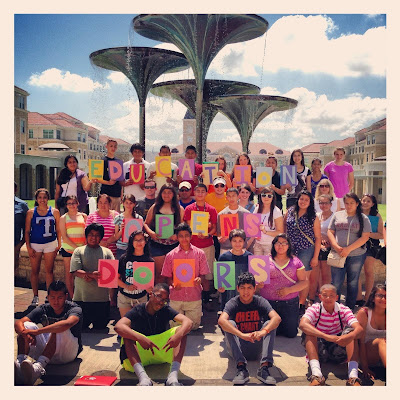I recall a conversation with a minor conductor. MC: Do you like Bach? JS: Not at all. MC: How about Mozart? JS: Ditto. MC: Beethoven? JS: Hardly. MC (exasperated): Do you like music? JS: Absolutely.
Then there is a hostile review of my book “John Simon on Music,” written by Alan Rich. We knew each other quite well without any love lost. Rich was outraged about there being in it only one mention of Mozart, and even that in a quotation from someone else.
Well, there it is: I don’t like any music before some Schubert, and not even all of his. What is all this about? Let me try to explain.
It seems to me that before the Romantics, music was constricted. I do not dispute that the two Bs and one M were important composers, but for me they were all about technique and technical innovation, but ultimately—even the tonitruous Beethoven—not truly free. Emotion, as I understand it, does not come in until the Romantics, and has been with us at least until Stockhausen and John Cage.
Now it would be nice if I were a musician and able, with illustrative examples and technical analysis, to explain the differences between, say, a passage in Mozart and one in Debussy. But, however enthusiastic, I am only a layman lacking even a college course in music, and can speak only the language of fellow laymen.
It appears to me that Bach and Mozart (Beethoven was somewhat different) wrote predictable, mathematical music, limited in scope, not unlike a caged canary’s pleasant but anodyne chirping. It was also perfectly square, by which I mean that from the first two notes of a bar you could predict the next two. Beethoven was, at any rate, impassioned, but not in a fully melodious way.
There were, of course, changes in rhythm and dynamics, and some very modest surprises. But even when the music deigned to be fast and loud, it was still wallpaper to me, which, after all, can also be loud and repeats its pattern rapidly.
Absent, for me, is what some would call sentimentality. There is no ecstasy, a sense of pathos even in the lighter colors, a stirring up of one’s feelings, beauty so intense that it almost hurts. There isn’t that mercurial quality of sudden changes from comedy to tragedy, a rhapsodic freedom to roam into supermelodiousness, into stirring harmonies and polyphony, into guarded poly- or atonality, into tunefulness that approaches the orgasmic as it fluctuates between gossamer and a kind of endearing grandiloquence. What can I say? Modulation, chromaticism, rapture.
To me, the top dozen geniuses among composers are Barber, Bartok, Berg, Debussy, Faure, Janacek, Poulenc, Prokofiev, Ravel, Shostakovich, Richard Strauss and Stravinsky. Following them there are any number of masters, of whom I want to call attention to only a few, who, not being obvious, are easily overlooked. Among these I cite Berkeley, Dutilleux, Guarnieri, Honegger, Ibert, Martin, Martinu, Mompou, Montsalvatge, Szymanovski, A. Tcherepnin and Tansman, though for a full list of them you will have to consult “John Simon on Music,” where you will find essays on most of them.
And then there are those whom I view as opera composers, even though they may have written quite a bit of other stuff. These would be Bizet, Britten, Gounod, Mussorgsky, Puccini, Verdi and Wagner, though (especially in the case of Wagner) I may consider them quite uneven.
And let me pay tribute to three popular composers who may be distinctly minor, but splendid in their way and particularly dear to me. There is, first, Nino Rota, chiefly remembered for his magnificent scores for Fellini movies. But he composed brilliantly for other filmmakers as well, and wrote classical music and operas nowise inferior to his finest film scores.
There is something about Rota’s music that can bring me very close to tears, as does much of that of Kurt Weill. He, too, was, even in his early classical compositions. close to popular music, but that, in someone like Weill or the delightful Noel Coward, is nowise diminishing, the way some of the great book illustrators are no less admirable than famous painters.
Finally, there are two composers whom I cherish for one work only, but what a work! They are Jerome Moross, whose musical “The Golden Apple,” and Ennio Morricone, whose film score for “Investigation of a Citizen Above Suspicion,” are, for me, immortal masterpieces.
Let me conclude by translating a small excerpt from an essay on music by Wilhelm Heinrich Wackenroder (1773-98), an important Preromantic, who had he not died so very young would have become an even more influential German writer, though he remains notable enough as is.
Music to me is altogether an image of our life: a touchingly brief joy that arises out of nothing and dissolves into nothing. . . . I consider music the most wondrous of inventions, because it renders human sentiments in a superhuman manner; because it reveals to us, aloft over our heads, all the stirrings of our temperament, disembodied and arrayed in golden clouds of airy harmonies. Because it speaks in a language we do not know in our routine life, one that we learned we know not where and how, and that one is inclined to regard as the tongue of angels.
Just so, dear William Henry, if may translate also your given names, you who are known as the shy and melancholy Wackenroder, happy only when listening to music. I myself can be happy in diverse ways, but my music is surely very high among them.







